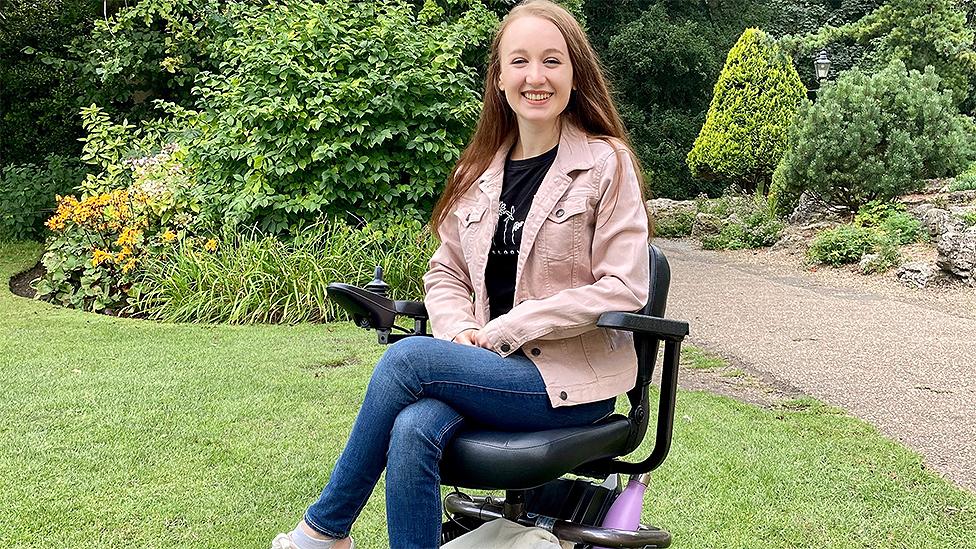Covid lockdown easing: Why am I exhausted after socialising?
- Published
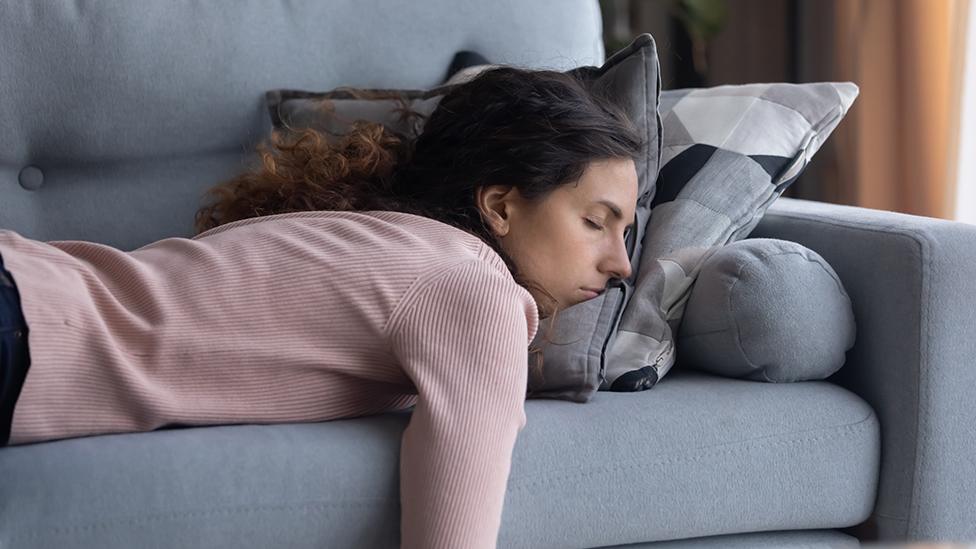
It's Sunday morning. You haven't woken up with a pounding headache and desperate for water. Result.
But you do have an overwhelming need to stay indoors for a long time, cancel future plans and recharge your social batteries.
Reader; you have a 'social hangover'.
If you've been feeling particularly overwhelmed after socialising and getting back to a relatively normal life since coronavirus restrictions started to ease, you're not alone.
What some people call a 'social hangover' is the feeling of exhaustion after depleting all your energy.
Allow X content?
This article contains content provided by X. We ask for your permission before anything is loaded, as they may be using cookies and other technologies. You may want to read X’s cookie policy, external and privacy policy, external before accepting. To view this content choose ‘accept and continue’.
'I drew the curtains and lay in bed in darkness'
Amelia Armstrong spent most of the first lockdown feeling isolated.
It was a "drastic change", the 22-year-old tells Radio 1 Newsbeat.
"Before lockdown I was always going to see my mates who are at uni across the country. I'm definitely a social person."
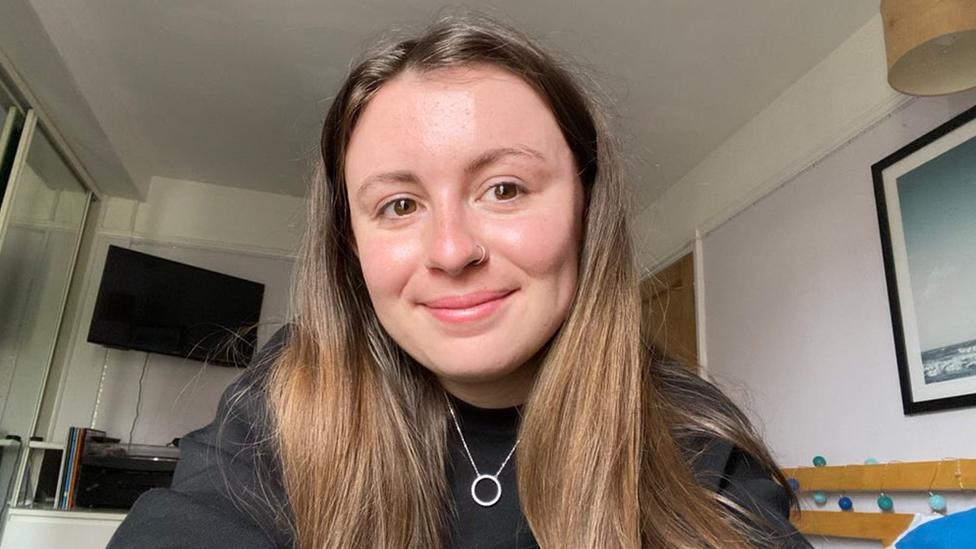
Amelia couldn't wait to go out again
Now that Covid restrictions have started to relax across the UK life has changed pretty quickly.
Instead of the Thursday night doorstep clap being the biggest event of the week, diaries are now filling up with brunches, meals out and pub gardens.
"I was basically counting down the days until I could go out," Amelia says.
"On the first two days everything was open, I went out quite a lot. Pub, shops, I did all of it."

Amelia and her friends usually go out regularly
Although she's loved seeing her friends and enjoying trips out, she's been surprised by the toll it's taken on her.
"You don't realise how overwhelming it can be when places are really busy. When you've had a year of it being quiet, it's quite exhausting.
"I just felt like completely drained. I literally drew the curtains and lay in bed in the darkness because I was just exhausted."
'A spike in stress'
According to clinical psychologist Dr Julie Smith, this is expected after a long period of lockdown.
"What you do every day becomes your comfort zone," she tells Newsbeat.
"So when you do something that is new and different, your brain is set up to give you a little spike in stress."
It's your brain's way of saying "we haven't done this in a while, stay alert and be careful. That's just your survival response".
So after life in lockdown getting back to normality is out of most of our comfort zones.
This, Julie says, is why we might be feeling tired - and it's something Faisa Mohamed relates to.
The 26-year-old from London has been seeing more people since restrictions eased and is "totally exhausted every single time".
"The next day is a write off with this overwhelming sense of tiredness, both with friends and family which surprised me a lot."
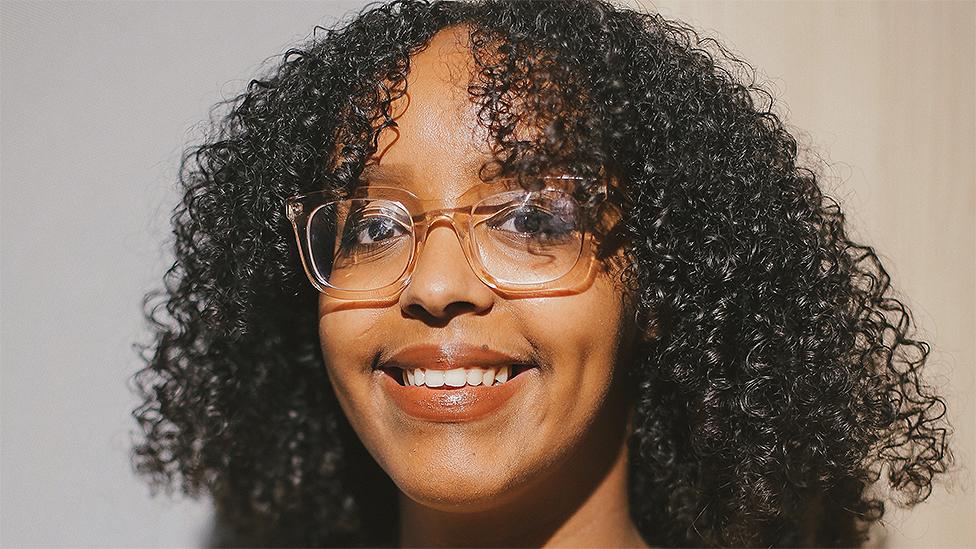
Normally, Faisa would meet up with friends without hesitation
Before the pandemic, Faisa was very socially active, running community events to encourage Somali talent in the tech industry.
Social tiredness was "non-existent", she says. "I was switched on to meeting new people all the time. That was my life."
But since lockdown she has became pretty focused on her work - because Zoom social events just aren't her thing.
"I wasn't too responsive to a lot of my friends so there was a lot of pressure when lockdown eased to get my relationships back where they were.
"But it wasn't as simple as I thought it would and I didn't realise how tiring it would be."
It won't last forever
Dr Julie says that after a long period of not doing much, we can become lethargic.
"Not exercising or socialising as much as you might normally will have an impact on flattening your mood and your effort."
Her advice for getting out of the funk?
"Action creates energy. So once we start to do more, we will feel the energy that goes with that. But, bringing yourself to that point can be quite difficult."

You won't be crashing on the sofa forever
If you're reading this and wondering if you'll ever get back to being a social butterfly, it's good news.
Dr Julie says that your mind and body will soon adjust to the way you're currently living your life.
In the mean time, instead of cancelling on friends and making excuses, it's best to be "open and honest".
"Let your friends know if you're anxious, then your friends can help to support you through that."


Follow Newsbeat on Instagram, external, Facebook, external, Twitter, external and YouTube, external.
Listen to Newsbeat live at 12:45 and 17:45 weekdays - or listen back here.
- Published1 March 2021
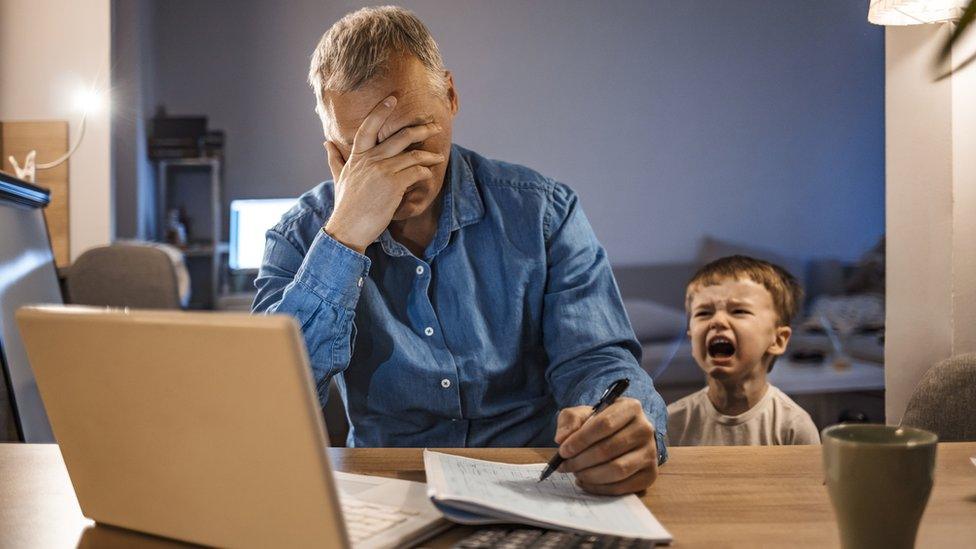
- Published14 May 2021
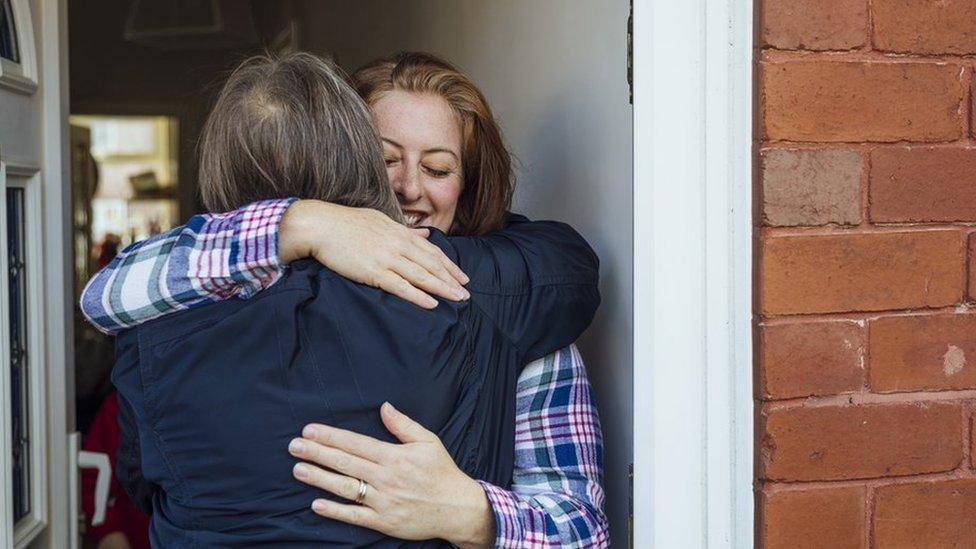
- Published17 May 2021

- Published14 July 2021
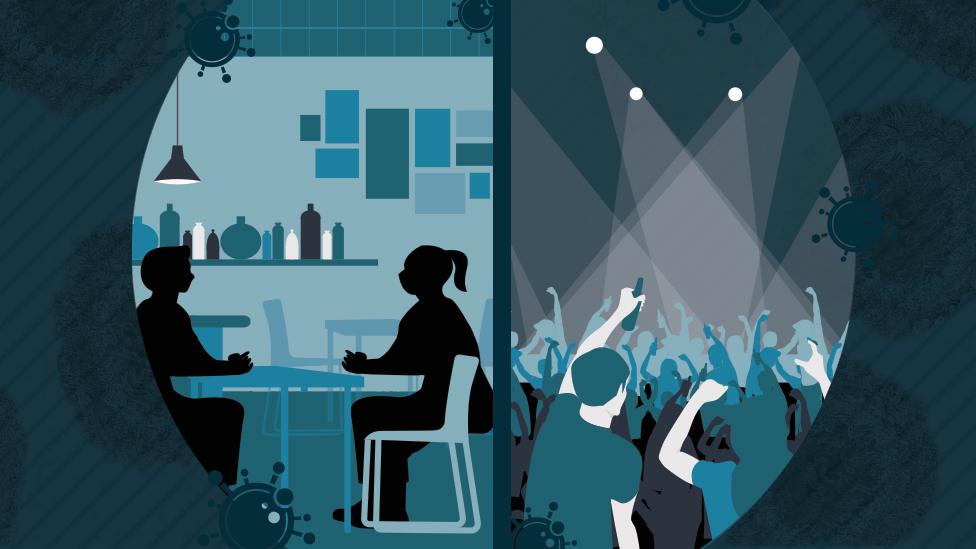
- Published1 July 2022

- Published12 May 2021
